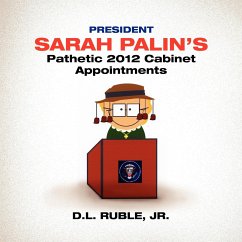"This book is an important contribution to our understanding of how power works in the executive branch of government. Lewis is careful in his arguments, precise with his data, and logical in his presentation. He has collected and analyzed impressive evidence to explain the techniques of politicization and their consequences. This book is the most complete analysis of presidential personnel policy available."--James P. Pfiffner, George Mason University "This is a remarkable work. Lewis challenges some of the basic assumptions that have been made in past research on this subject. He demonstrates that the increase in politicization occurred until 1980 and then flattened out. Lewis finds that while politicization continues, it is not trending upward as past research suggests. All presidents do not have the same incentives when it comes to politicizing the bureaucracy."--Richard W. Waterman, University of Kentucky
In the wake of Hurricane Katrina, many questioned whether the large number of political appointees in the Federal Emergency Management Agency contributed to the agency's poor handling of the catastrophe, ultimately costing hundreds of lives and causing immeasurable pain and suffering. The Politics of Presidential Appointments examines in depth how and why presidents use political appointees and how their choices impact government performance--for better or worse. One way presidents can influence the permanent bureaucracy is by filling key posts with people who are sympathetic to their policy goals. But if the president's appointees lack competence and an agency fails in its mission--as with Katrina--the president is accused of employing his friends and allies to the detriment of the public. Through case studies and cutting-edge analysis, David Lewis takes a fascinating look at presidential appointments dating back to the 1960s to learn which jobs went to appointees, which agencies were more likely to have appointees, how the use of appointees varied by administration, and how it affected agency performance. He argues that presidents politicize even when it hurts performance--and often with support from Congress--because they need agencies to be responsive to presidential direction. He shows how agency missions and personnel--and whether they line up with the president's vision--determine which agencies presidents target with appointees, and he sheds new light on the important role patronage plays in appointment decisions.
Hinweis: Dieser Artikel kann nur an eine deutsche Lieferadresse ausgeliefert werden.
In the wake of Hurricane Katrina, many questioned whether the large number of political appointees in the Federal Emergency Management Agency contributed to the agency's poor handling of the catastrophe, ultimately costing hundreds of lives and causing immeasurable pain and suffering. The Politics of Presidential Appointments examines in depth how and why presidents use political appointees and how their choices impact government performance--for better or worse. One way presidents can influence the permanent bureaucracy is by filling key posts with people who are sympathetic to their policy goals. But if the president's appointees lack competence and an agency fails in its mission--as with Katrina--the president is accused of employing his friends and allies to the detriment of the public. Through case studies and cutting-edge analysis, David Lewis takes a fascinating look at presidential appointments dating back to the 1960s to learn which jobs went to appointees, which agencies were more likely to have appointees, how the use of appointees varied by administration, and how it affected agency performance. He argues that presidents politicize even when it hurts performance--and often with support from Congress--because they need agencies to be responsive to presidential direction. He shows how agency missions and personnel--and whether they line up with the president's vision--determine which agencies presidents target with appointees, and he sheds new light on the important role patronage plays in appointment decisions.
Hinweis: Dieser Artikel kann nur an eine deutsche Lieferadresse ausgeliefert werden.







